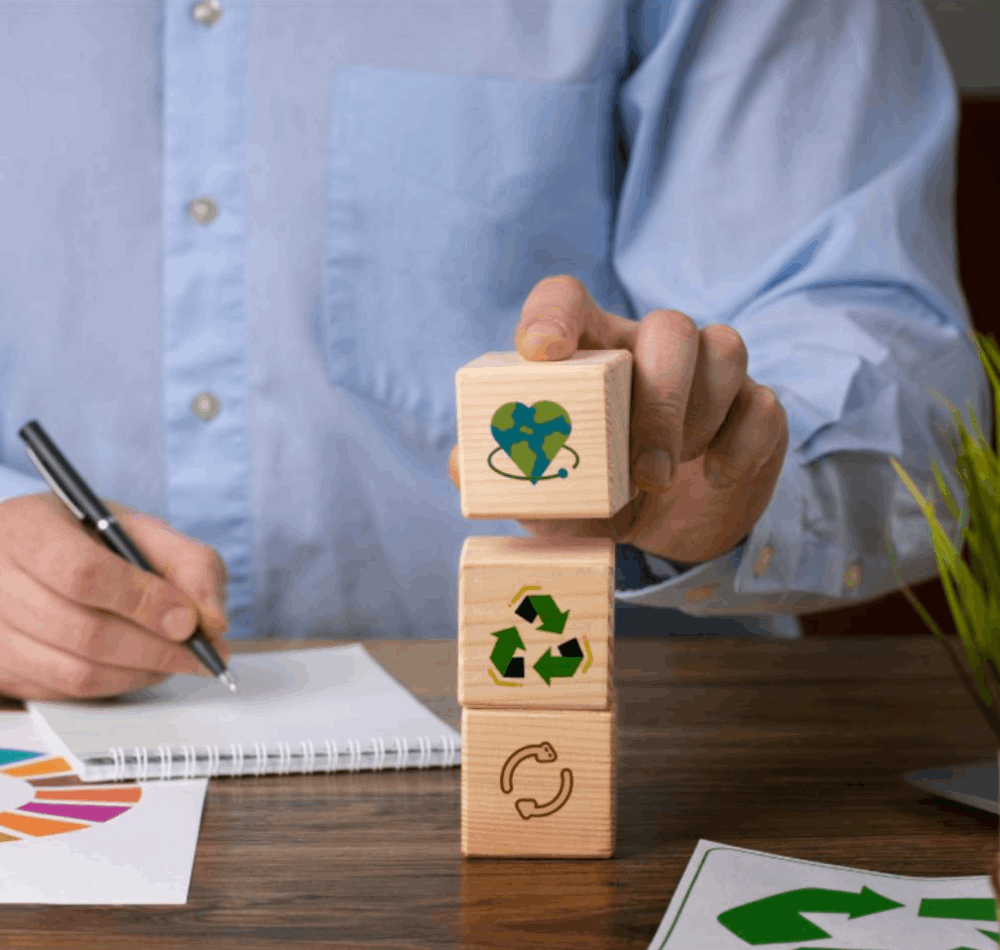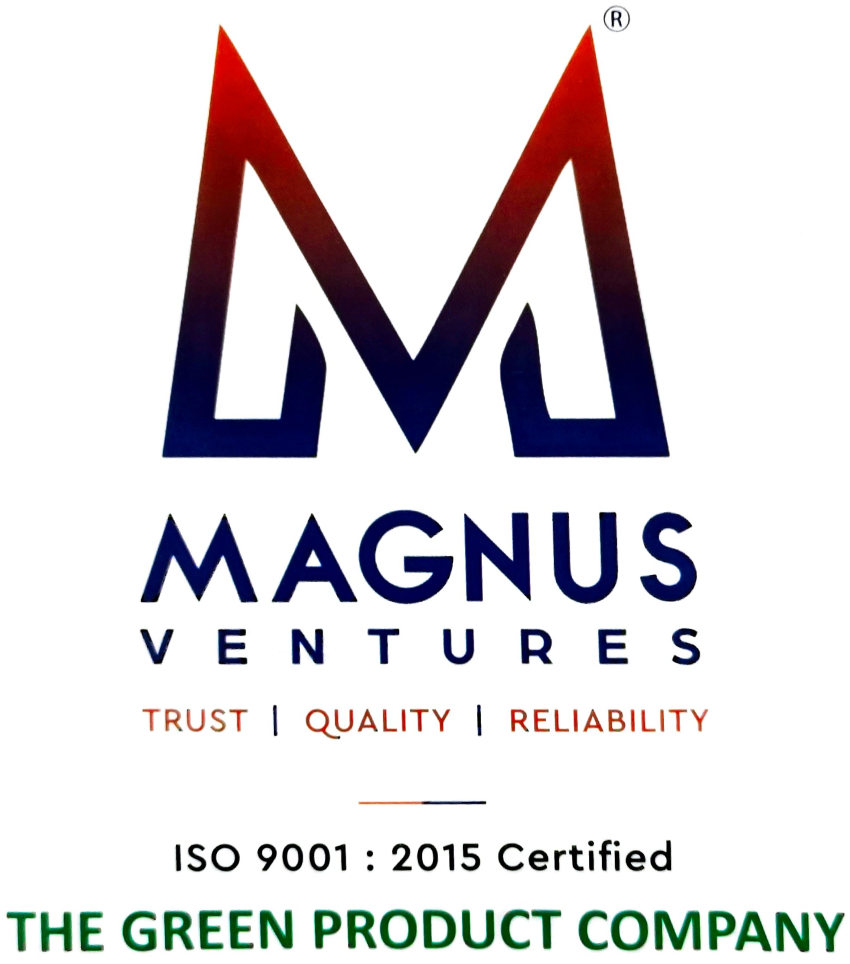
The relentless exploitation of natural resources in the construction industry has cast a dark shadow on the environment. For ages, the use of natural resources like sand or M-sand has exacted a heavy toll on nature, and nowhere is this more evident than in the Indian real estate sector. Unsustainable practices, deeply entrenched in the industry, have perpetuated the destruction of ecosystems and jeopardized the delicate balance of our planet. Urgent changes are needed to reverse this alarming trend.
One of the most pressing issues is the rampant sand mining, which has taken a severe toll on India’s rivers and coastal areas. The relentless extraction of sand has caused terrible erosion, disrupted ecosystems, and increased the risk of devastating floods. Additionally, the excessive use of sand and M-sand in construction exacerbates the environmental degradation. Habitats are destroyed, biodiversity is lost, and water quality is compromised.
It is time for a paradigm shift in the way we approach construction and opt for eco-friendly construction materials like ready-mix plasters or tile adhesive cement that are used on a rather large scale. In the present day, real estate players can make a valuable impact simply by being mindful while picking materials that do not use any natural resources. For instance, just by avoiding the use of natural sand that comes from mining, could help in reducing their carbon footprint greatly.
By embracing sustainability and choosing manufacturers like Magnus Ventures who do not use natural resources, instead use the upcycled industrial waste, we can protect our ecosystems. Besides, the company is GRIHA and IGBC GreenPro Certified and provides excellent quality materials that are commercially viable making it easy for corporate players to grow their real estate portfolio strongly while building a brighter and greener future for generations to come.
Understanding the Importance of Environmentally Friendly Construction Materials
In today’s world, it is important to focus on practices that are environmentally friendly. This includes the use of construction materials that are sustainable. When constructing a building or infrastructure project, the materials used in the process have a big impact on the overall environmental impact of the project. Therefore, it is important to choose sustainable building materials to promote sustainable development.
Eco-friendly building materials have a minimal negative impact on the environment. They are sourced, manufactured, used, and disposed of in such a way that overall environmental impact is considered. These materials can help in reducing carbon footprint, conserving natural resources, improving indoor air quality, minimizing waste and pollution, enhancing energy efficiency, and promoting sustainable development.
Assessing the Environmental Impact of Construction Materials
The environmental impact of construction materials is an important factor that needs to be considered when choosing the right materials for a construction project. Construction materials contribute to a broad range of environmental issues such as greenhouse gas emissions, waste generation, natural resource depletion, and pollution. Therefore, it is important to assess and evaluate the environmental impact of construction materials to make informed decisions and promote sustainable development.
The assessment of environmental impact can be done through an environmental life cycle assessment (LCA). The LCA is a tool that analyzes the environmental impact of a product or material throughout its lifecycle. This assessment considers the impact of the material in terms of raw material extraction, transportation, manufacturing, use, and disposal.
When assessing the environmental impact of construction materials, it is important to consider factors such as energy consumption, greenhouse gas emissions, water consumption, pollution, and waste generation. Some materials may have a higher environmental impact during the manufacturing phase, while others may have a higher environmental impact during the disposal phase. Therefore, it is important to consider the entire lifecycle of the material.
Identifying Key Criteria for Selecting Sustainable Construction Materials
When it comes to choosing sustainable construction materials in the Indian real estate or construction industry, several key criteria need to be considered. These criteria ensure that the chosen materials meet both environmental and social sustainability goals. Here are some of the key criteria to consider
- Renewability: One of the primary criteria for selecting sustainable construction materials is their renewability. Materials that are derived from renewable sources like bamboo, wood from sustainably managed forests, or composites made from agricultural waste, are preferred. These materials have minimal impact on the environment and are replenishable.
- Energy Efficiency: Another crucial aspect is the energy efficiency of the materials. Opting for materials that require less energy in their production and installation is essential. For example, choosing materials that have a low embodied energy, such as recycled steel or fly ash bricks, can significantly reduce the overall energy consumption in construction.
- Recyclability and Reusability: Sustainable materials should also be easy to recycle or reuse at the end of their lifecycle. Materials like concrete can be crushed and used as aggregate, while steel can be recycled without losing its properties. Choosing materials that can be easily recycled or reused reduces the overall waste generated by the construction industry.
- Toxicity and Emissions: It is crucial to consider the toxicity and emissions associated with construction materials. Opting for materials that have low volatile organic compound (VOC) emissions or materials that do not release harmful chemicals during their lifespan ensures a healthier living environment for occupants.
By considering these key criteria, the Indian real estate and construction industry can make more informed choices in selecting sustainable construction materials that align with their sustainability goals.
Navigating Certification and Labeling Systems for Sustainable Materials
In the Indian real estate and construction industry, navigating certification and labeling systems for sustainable materials can be a daunting task. However, these systems are crucial in establishing the credibility and ensuring the sustainability of the chosen materials. Here are some important points to consider:
- Green Building Certifications: Various certifications like LEED (Leadership in Energy and Environmental Design) or IGBC (Indian Green Building Council) provide guidelines and standards for the use of sustainable materials. These certifications often require specific criteria to be met, verifying that the materials used are environmentally friendly.
- Third-Party Certifications: Third-party certifications, such as Cradle to Cradle (C2C) or Forest Stewardship Council (FSC), offer independent assessments of the sustainability of materials. These certifications evaluate factors like environmental impact, social responsibility, and material health, providing transparency and credibility.
- Industry Associations and Standards: Collaborating with industry associations like the Indian Green Building Council or the Indian Concrete Institute can help in navigating through the certification and labeling systems. These associations often provide resources, training, and guidance on sustainable materials selection.
- Supplier Transparency: It is important to seek transparency from suppliers regarding the sourcing and manufacturing processes of the materials. Suppliers that can provide detailed information about the materials’ environmental characteristics and certifications are more likely to be reliable.
By understanding and navigating these certification and labeling systems, the Indian real estate and construction industry can ensure the use of sustainable materials and enhance their sustainability practices.
Considering Long-Term Durability and Maintenance of Green Construction Materials
In the context of the Indian real estate and construction industry, considering the long-term durability and maintenance of green construction materials is vital to ensure sustainable practices. Here’s why:
- Life Cycle Assessment: It is essential to conduct a life cycle assessment (LCA) of green construction materials to evaluate their durability and maintenance requirements. LCA considers the environmental impact of materials throughout their entire life cycle, including extraction, production, installation, use, and end-of-life. Choosing materials with a longer lifespan and minimal maintenance needs can reduce the overall environmental impact.
- Protocols and Guidelines: Following manufacturer’s maintenance protocols and guidelines ensures the longevity of green construction materials. Proper installation, routine inspections, and regular maintenance can help identify and address any potential issues before they become major problems.
- Training and Education: Providing training and education to construction professionals and occupants about the proper care and maintenance of green materials can maximize their performance and longevity. Awareness about the unique properties and requirements of these materials will help ensure they are properly taken care of.
- Warranty and Support: Choosing materials that come with reliable warranties and after-sales support ensures protection against any unforeseen defects or issues. Warranty coverage can provide peace of mind and help in addressing maintenance or repair needs promptly.
By considering the long-term durability and maintenance of green construction materials, the Indian construction industry can optimize the sustainability and cost-effectiveness of their projects.
Weighing the Cost-Benefit Analysis of Environmentally Friendly Materials
When it comes to selecting environmentally friendly materials in the Indian construction industry, it is important to conduct a comprehensive cost-benefit analysis. While these materials may initially appear more expensive, it is crucial to evaluate their long-term benefits, which often outweigh the upfront costs. Environmentally friendly materials such as recycled steel, sustainable wood, or energy-efficient insulation may require a higher initial investment, but they offer numerous advantages. They can significantly reduce operating costs by conserving energy, water, and other resources, leading to long-term cost savings. Additionally, these materials can enhance the building’s value, appeal to environmentally conscious customers, and comply with green building certifications. By carefully considering the potential long-term benefits, the construction industry can make informed decisions that balance economic viability with environmental sustainability.
Incorporating Biodegradable and Non-Toxic Materials in Construction
The inclusion of biodegradable and non-toxic materials in the Indian construction industry is crucial for promoting a healthier and more sustainable built environment. Biodegradable materials, such as natural fibers, organic coatings, or bio-based composites, can decompose naturally and reduce the accumulation of waste in landfills. These materials also minimize the extraction of non-renewable resources. Furthermore, non-toxic materials, free from harmful chemicals like volatile organic compounds (VOCs), contribute to better indoor air quality and occupant health. By opting for biodegradable and non-toxic materials, the construction industry can create spaces that are environmentally friendly and healthier for both construction workers and building occupants. This approach aligns with sustainable development goals and contributes to a more sustainable future for the Indian construction industry.
Choosing eco-friendly materials in the construction industry is imperative for reducing its impact on the environment and ensuring a sustainable future. As a leading construction company, Magnus Ventures is an excellent option as it holds IGBC GreenPro certification, ISO certification and our VOC content is practically NIL. By choosing us, you can rest assured that your construction project will follow sustainable practices and minimize harm to the environment. To know more about our ground-breaking engineered eco-friendly products like ready-mix plasters and tile adhesives that generate 0 waste, head to our website now.

